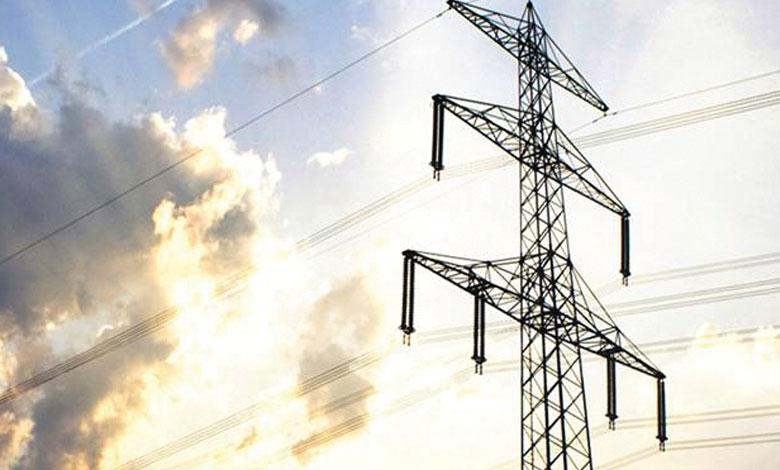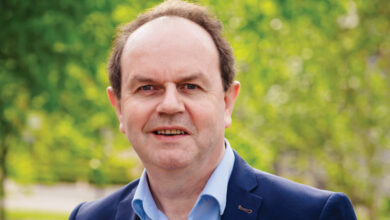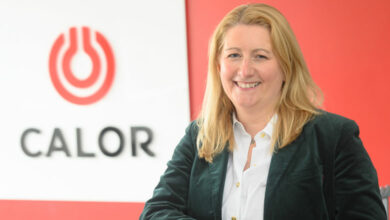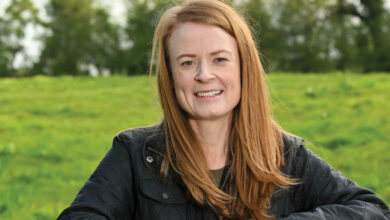Renewable energy and net zero in Northern Ireland

With the 2030 energy deadline fast approaching, several challenges, such as regulatory hurdles, energy price rises, and consumer affordability, are significantly stalling progress, MPs have been told.
These challenges are the focus of the Northern Ireland Affairs Committee (NIAC), aiming to evaluate Northern Ireland’s strategy for meeting its 2030 and 2050 energy targets.
To help the UK Government fulfil its 2050 net zero commitment, Northern Ireland’s Executive set a target for 80 per cent of its electricity to come from renewable sources by 2030. Yet, latest statistics reveal that progress towards this ambition is regressing, prompting the committee to launch an inquiry into the issue in the absence of Stormont.
Ian Snowden, Permanent Secretary of the Department for the Economy, highlights: “There is a fantastic opportunity in Northern Ireland to achieve energy self-sufficiency, possibly for the first time in history of the region… It will be extremely challenging to push all of that through in the timescale, but it is possible.”
However, Richard Rodgers, Director of Energy for the Department for the Economy, underscores the tight timeline, stating: “What we have done in 23 years now has to be done in six.” This urgency was echoed by Steven Agnew, Director of RenewableNI, who cited a report, based on the latest research from SONI in Tomorrow’s Energy Scenarios, indicating that Northern Ireland might not achieve zero carbon electricity until 2040 at the earliest.
Renewable energy landscape and infrastructure
Derek Scully, Head of Corporate Affairs in Energia Group points out that Northern Ireland has made “exceptional” achievements, with up to 50 per cent of its electricity coming from renewables, primarily onshore wind.
“Some 40 per cent to 50 per cent of electricity in Northern Ireland is from renewables. We can look anywhere else in the world, and you will find higher renewable numbers, but you will not find it where it has been almost exclusively onshore wind.” However, Scully acknowledged that “the 80 per cent target by 2030… is going to be a real challenge”.
Other experts, like Professor David Rooney, who specialises at the Research Centre in Sustainable Energy at Queen’s University Belfast emphasises the need to speed up processes and planning, with James Richardson, Chief Economist of the UK Climate Change Committee, adding that several factors have been detrimental to progress, stating: “planning has been an issue, regulations have been an issue, connection charges have been an issue.”
To increase renewable energy generation, the committee acknowledges that expanding grid capacity and improving infrastructure are crucial. Agnew warns: “Business as usual will mean that we do not just miss our 2030 target, but miss it by a mile.”
Mark Fitch, Corporate Development Director at Transmission Investment, calls for stable policies and regulations to encourage investment. Furthermore, Fitch suggests that Northern Ireland could benefit from adopting practices that are already proven elsewhere, such as the UK and Republic of Ireland. This, in turn, would help speed up the planning process and therefore accelerate growth in relation to renewable energy within Northern Ireland.
Consumer energy prices and public perception
Affordability and consumer perception are significant barriers to achieving renewable energy targets. Peter McClenaghan, Director of Infrastructure and Sustainability at the Consumer Council for Northern Ireland, notes that “97 per cent of people… are significantly worried about energy prices”.
Addressing these concerns requires clear data collection and a shift in energy pricing. Snowden explains that data collection is “key” in terms of “either a surcharge on those using fossil fuels or a discount on those using renewable energies”.
Investor confidence and support schemes
Investor confidence is essential for driving renewable energy projects forward.
Paddy Larkin, CEO of Mutual Energy, states: “We do not have a support scheme for renewable generation, so there is not any being built.” The absence of consistent support schemes has driven investment to other regions, such as the south of Ireland.
In February 2023, the Department for the Economy issued a consultation to gather insights for the development of a renewable electricity support scheme (RESS) in Northern Ireland, and subsequently a ‘Proposed High Level Design’ was issued in April 2024.
Fitch reinforces the need for stability during this time, suggesting that adopting established support systems would attract investors.
Grid connections
Agnew firmly believes that the status-quo in achieving 2030 targets will not achieve the renewable energy needed, stating: “You will not be connected (via grid connections) until 2030, no matter how quickly you can build it.”
James Richardson, Chief Economist at the UK Climate Change Committee believes that limited grid capacity is a key challenge in Northern Ireland: “It is mostly going to require upgrading the grid. There are certainly things that you can do, which mean that you do not have to upgrade the grid by as much as you are upgrading the use of electricity, by putting more flexibility into the system and shifting demand out of the peaks, because you have to build these grids for the peak. It is typically in the evening when you can shift demand for things like electric vehicle charging. Heat pumps are pretty flexible about when you can put them on.”
Rooney emphasises this point, stating, “I would agree. Large-scale investment in the main energy carriers in the future, which is electricity, needs to happen and needs to happen as soon as possible.”
Fitch suggests: “I would say, “Let us look at our close neighbours and what they are doing and seek to copy the mature things that are going on there to bring more people in to deliver it more quickly, cheaper, and better.”
David Blevings, Ireland Manager of OFTEC suggests a “fast, streamlined process for energy policy”, emphasising the need for government intervention to accelerate planning.
Journey towards net zero
Northern Ireland’s journey toward net zero and renewable energy is filled with challenges, from infrastructure to investor confidence and consumer affordability. The NIAC discussions highlight the need for a cohesive strategy, robust support schemes, and expedited planning processes. Without these changes, achieving the 2030 target could be an uphill battle.





